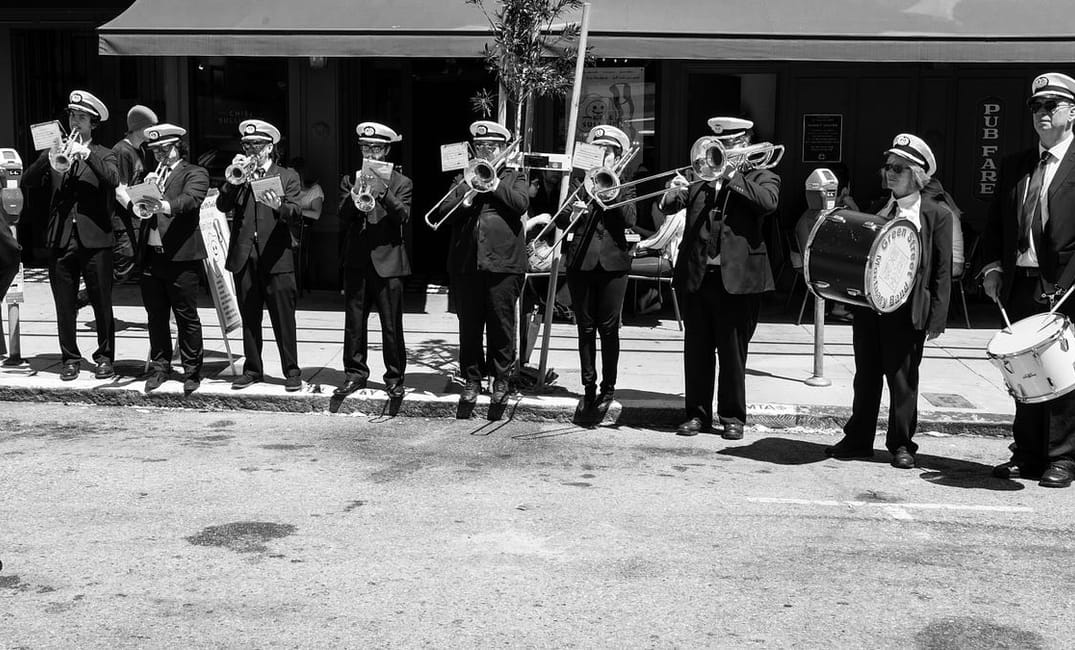
All photos by Charles Versaggi
Continuing a San Francisco Chinatown tradition that’s over 100 years old, the Green Street Mortuary Band has a simple motto: “Dignity, Honor and Respect.” Led by Lisa Coppola, who calls herself “Saxlady,” the band plays exclusively at more than 350 Chinese funerals a year in association with the Green Street Mortuary in North Beach.
Chinese funeral bands and Western marching bands have been part of Chinatown since as early as 1897. Chinese funerals are a hybrid ceremony of mourning that combines Western symbols with ancient Chinese traditions of ancestor worship, formally rooted in Confucianism more than two thousand years ago.
Playing mostly solemn Christian hymns and dirges, the Chinese Western-style marching band became a Chinatown cultural fixture in 1911 when a group of young Chinese and American boys exchanged marching music in front of a large, appreciative crowd gathered on Stockton Street. The friendship and sharing of musical ideas was the inspiration for the New Cathay Boys Band, later renamed the Cathay Club Band.
The Cathay Club Band was unique to San Francisco’s Chinatown. Although it’s not clear when they began playing for funerals, eventually they played in every funeral procession in Chinatown until the mid-1950s. However, as the band members got older, they stopped public performances until it was reorganized in the late 1990s by Lisa Pollard and John Coppola when they were jazz musicians playing together. Later the two married, and Lisa continued as the band’s leader after John’s death in 2015.
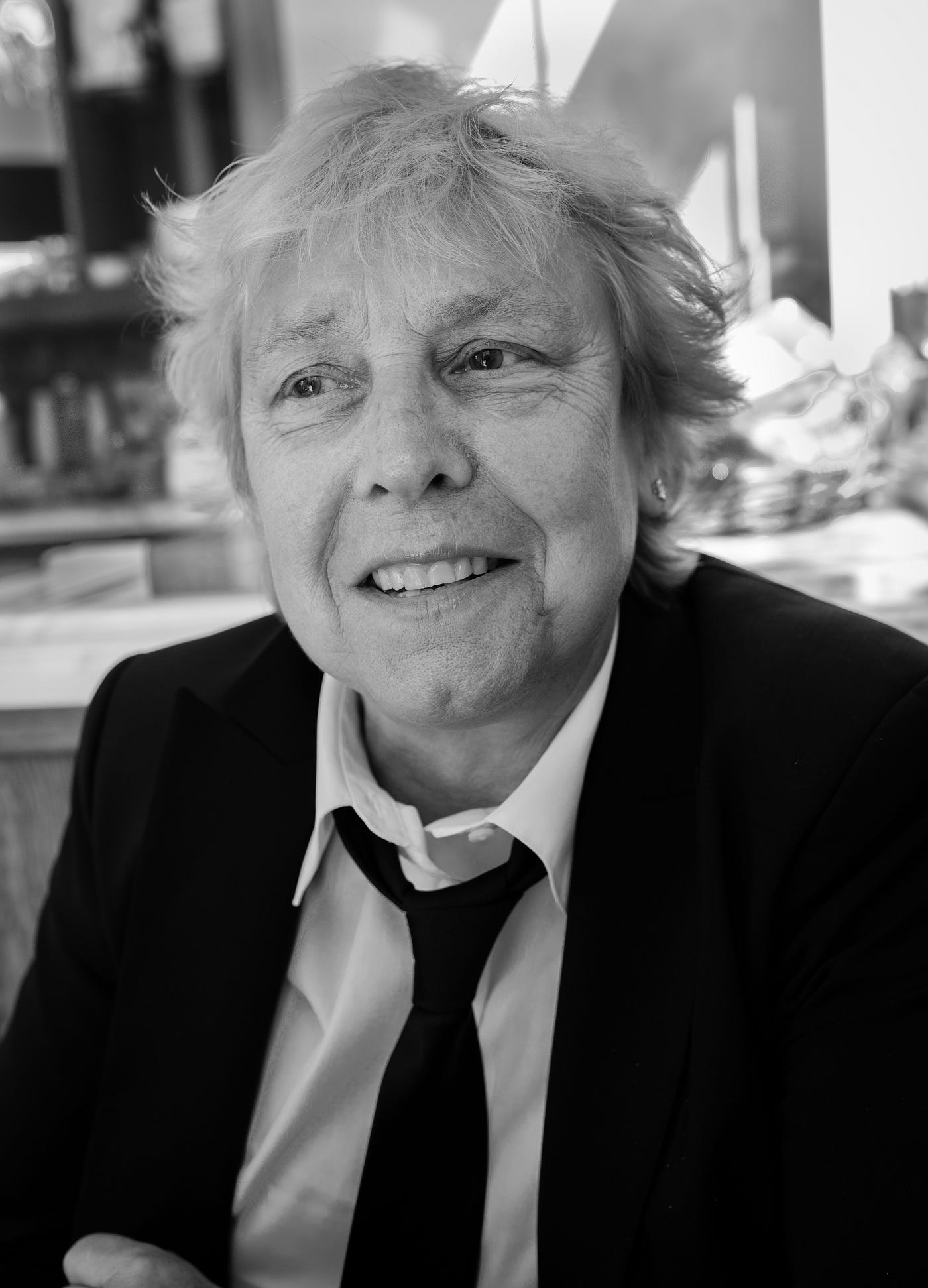
Coppola is wearing her work uniform — a black suit, a crisp white dress shirt and a loosely opened black tie. On the street, a white nautical cap with gold trim, along with General MacArthur sunglasses, completes the ensemble.
“We take the deceased on their last journey where they’ve been born and raised — their last farewell to Chinatown,” Lisa explained. “A proper funeral is critical to spirit welfare, particularly if the funeral is for one’s parents, showing the family’s pride, respect and status as well as to ‘save face’ in the community.”
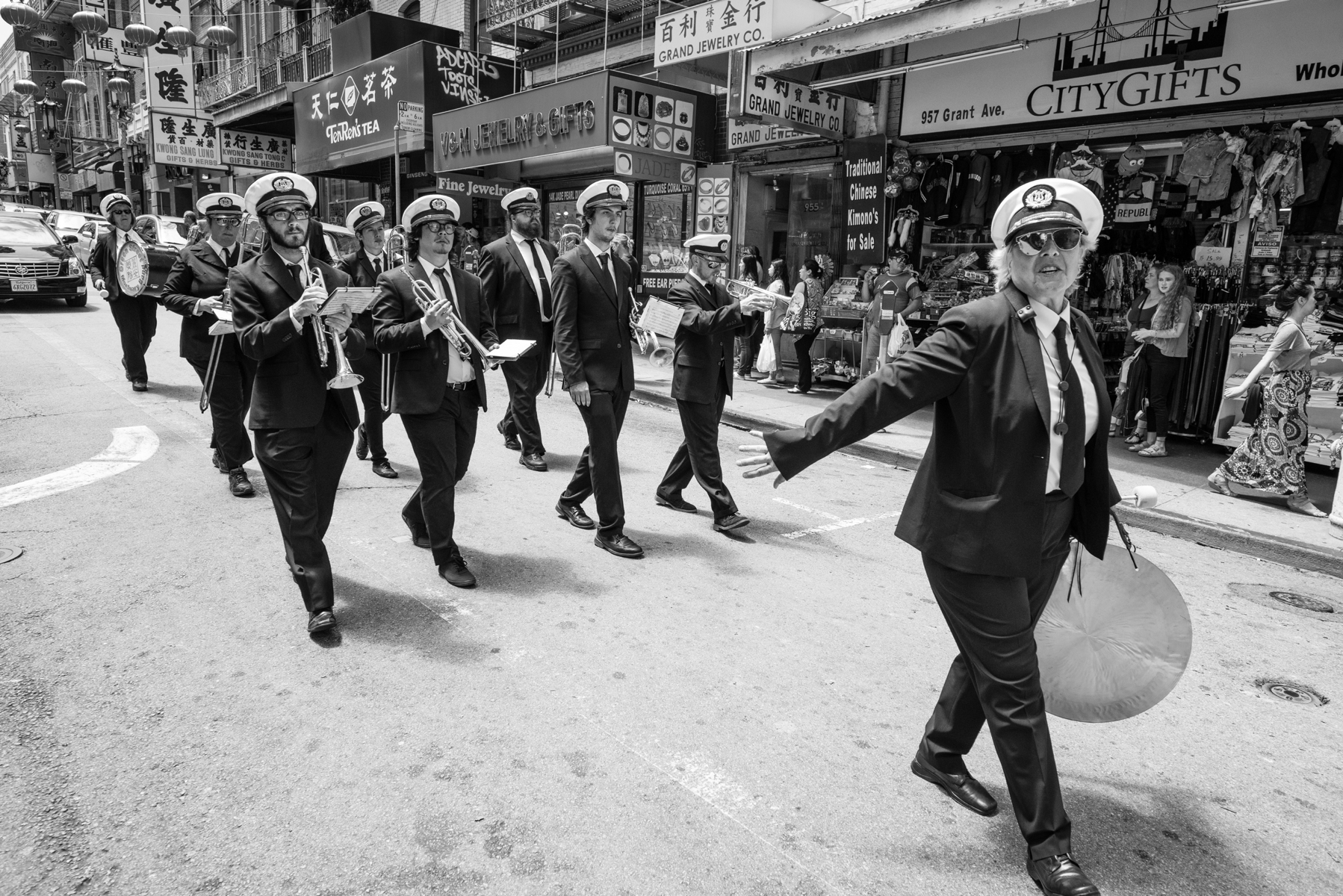
The 10-member band is comprised of first-class trombonists, trumpeters, a snare drummer and a bass drummer, and an occasional tuba player. Lisa directs with a bass drum mallet, striking it against a brass gong that resonates through the streets of Chinatown.
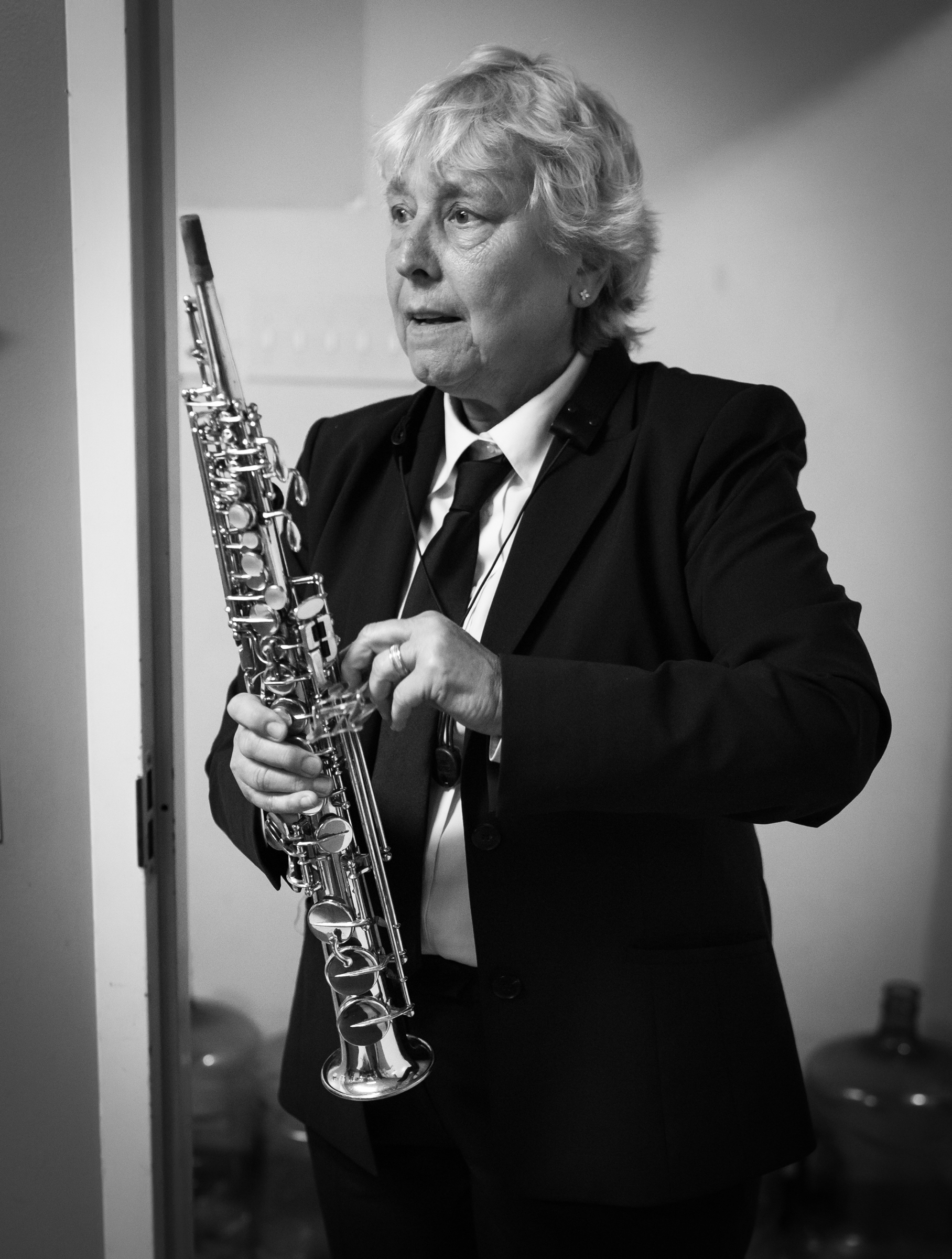
Although the funeral marches are predominately for Chinese patrons, the band occasionally plays for others who are not. “We did Herb Caen’s funeral. Everybody wanted to be in that band. We’ve played for a lot of famous people who were not Chinese,” Coppola added.
Green Street Mortuary was owned previously by Valente Marini Perata & Co., the preferred funeral parlor of North Beach Italians for more than 100 years. Wakes were held here after funeral masses at Saints Peter and Paul Church, and burials at the Italian Cemetery or Holy Cross Cemetery in Colma.
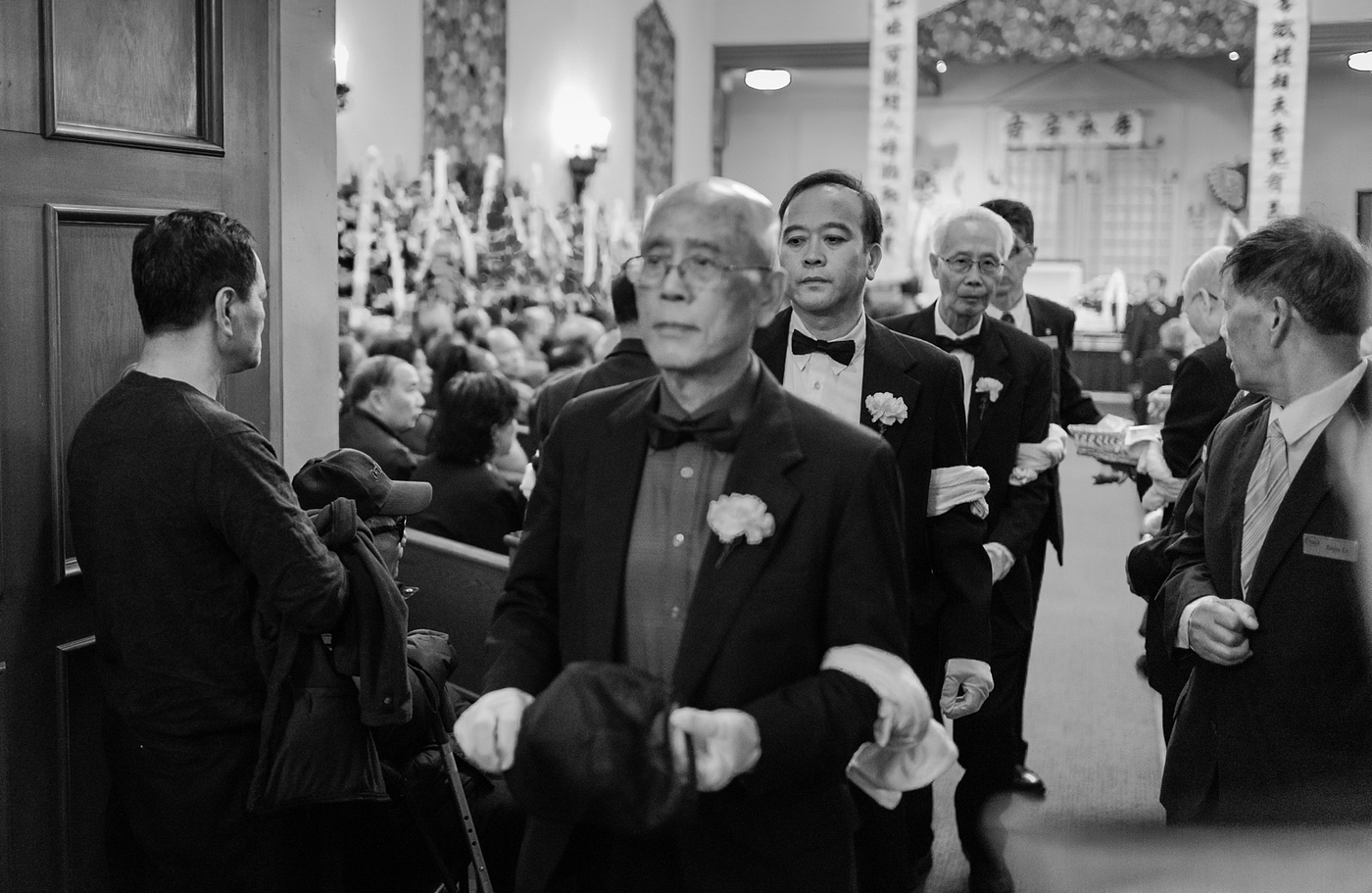
It’s Saturday mid-morning, and a warm sun shines brightly for the spirit’s last journey through its neighborhood. Following the chapel ceremony, at the chapel door family members give each guest li shi — lucky money to ward off death’s bad luck—and a piece of candy to sweeten the bitter taste of death, wrapped together in a small red envelope.
As I watch the scene before me, I can’t help but realize that this very chapel was where my father, mother and many of my Italian relatives were laid in repose before being taken to their final resting place. The contrast between what I see and the memory of my father’s funeral just seven years ago is a striking testament to the cultural changes that continue to occur in North Beach.
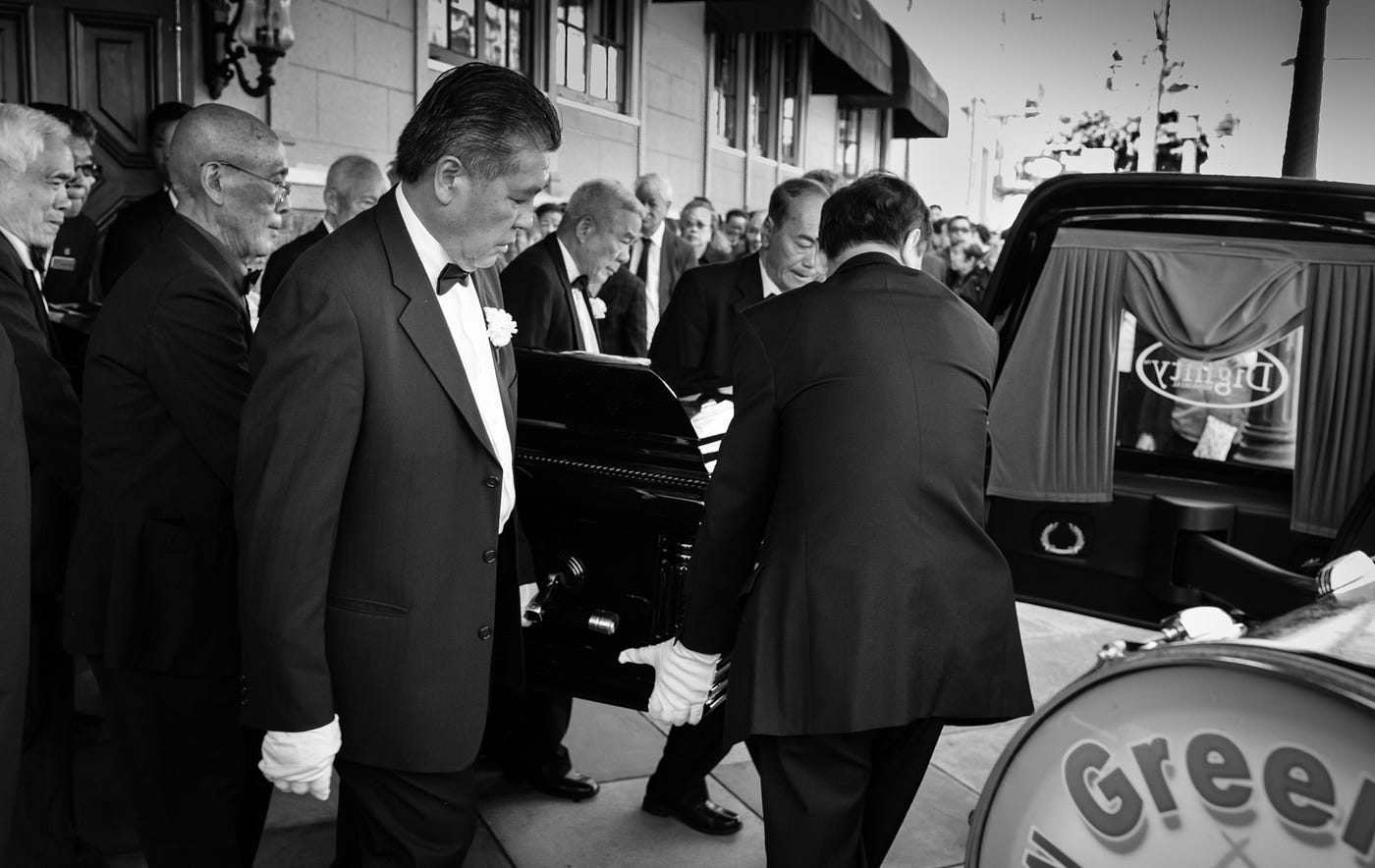
Mortuary staff lead the mourners outside, where they gather to witness the loading of the coffin into a Cadillac hearse, with a motorcycle policeman standing guard. Family members are wearing a “crying towel” tied to their left arm, which signifies that the decedent was a man. If the deceased is a woman, the towel is worn on the right arm.
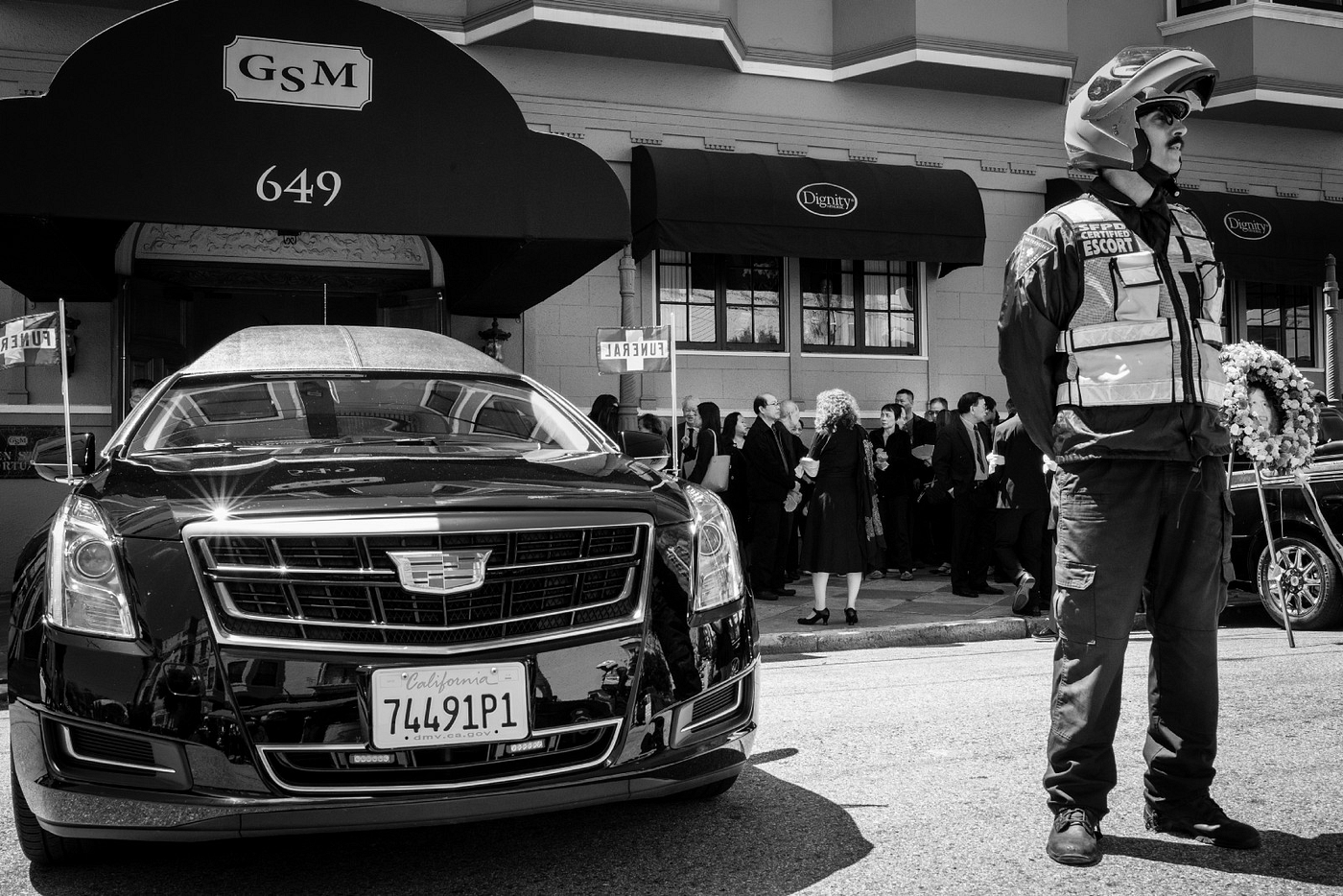
The Green Street Mortuary Band is now lined up across the street, facing the mourners and waiting for the pallbearers to load the casket into the hearse. As the casket is carried down the stairs, a drumroll is joined by the solemn beating of the bass drum, and the band begins to play its signature opening tune, “Amazing Grace.”
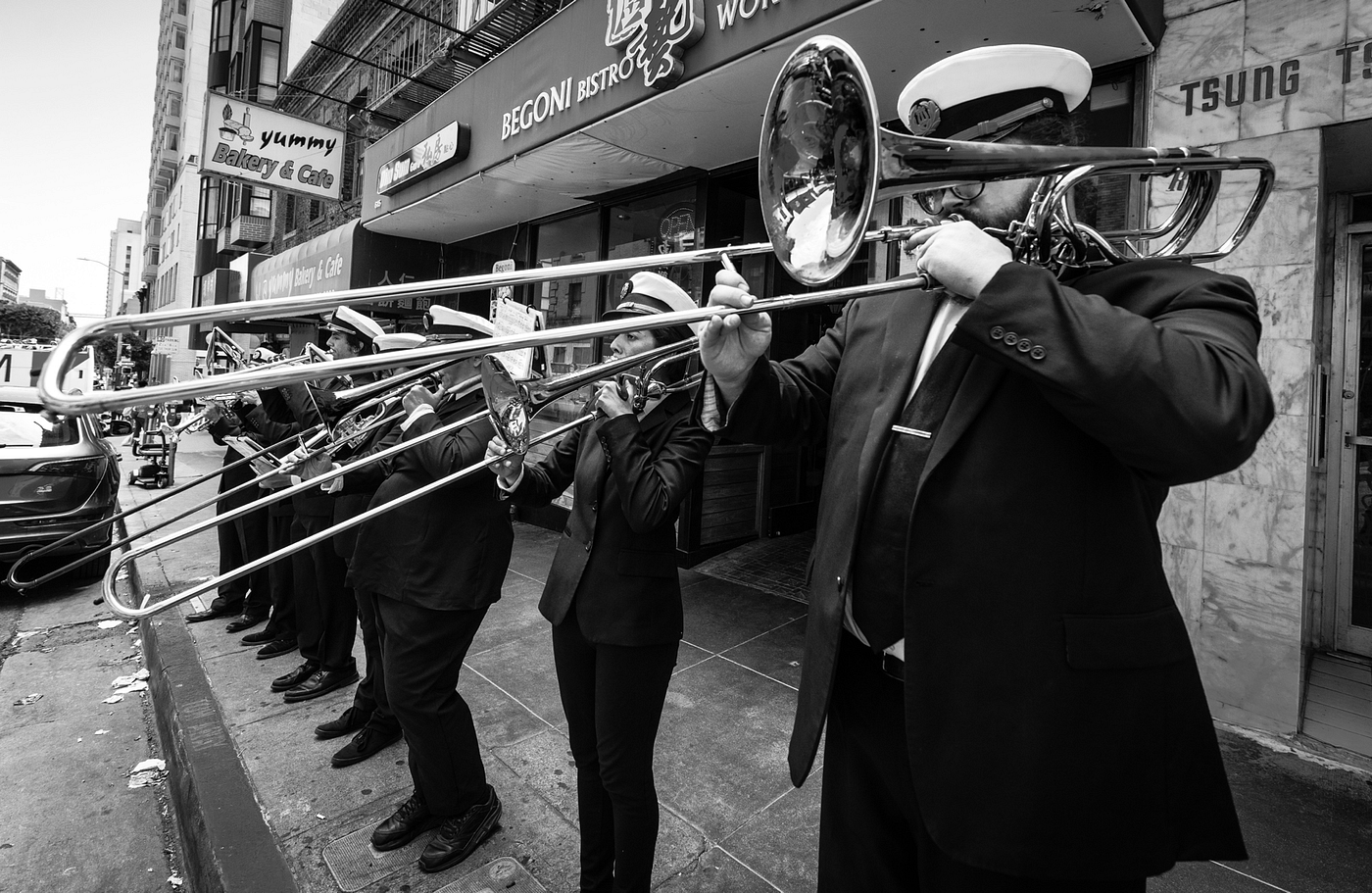

A gong signals the conclusion of the traditional hymn, and mortuary staff then escort the family to the waiting limousines. As the guests proceed to their cars, the band waits at the corner of Green Street, Columbus Avenue and Stockton Street, playing the Chinese folksong “Wishing You Happiness and Prosperity.”
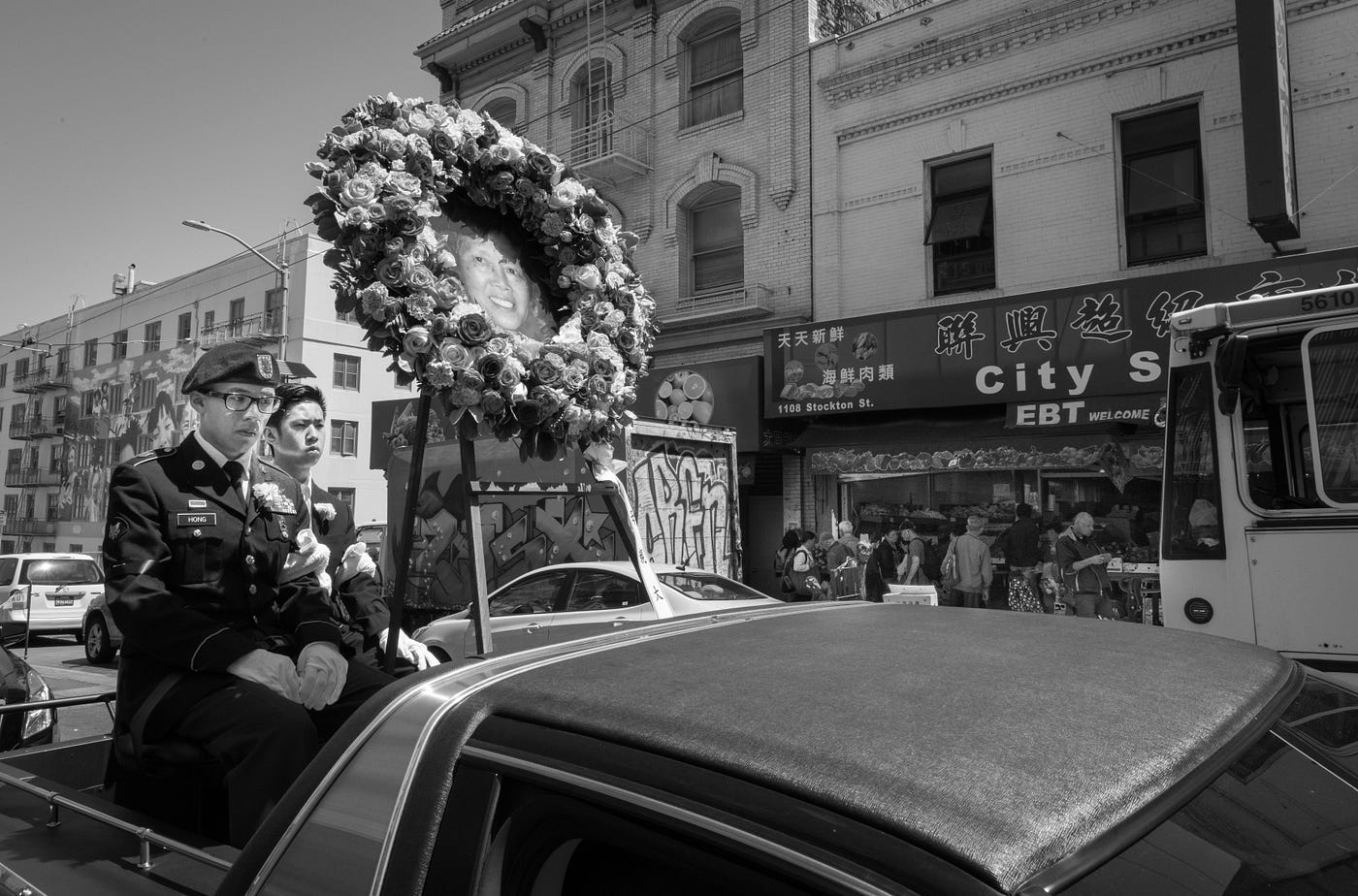
Behind the Green Streeters is a custom Cadillac convertible carrying a photograph of the deceased surrounded by a wreath of flowers. Two family members, one in military dress, are sitting next to it. The convertible is followed by the hearse, an entourage of cars and a motorcycle police escort.
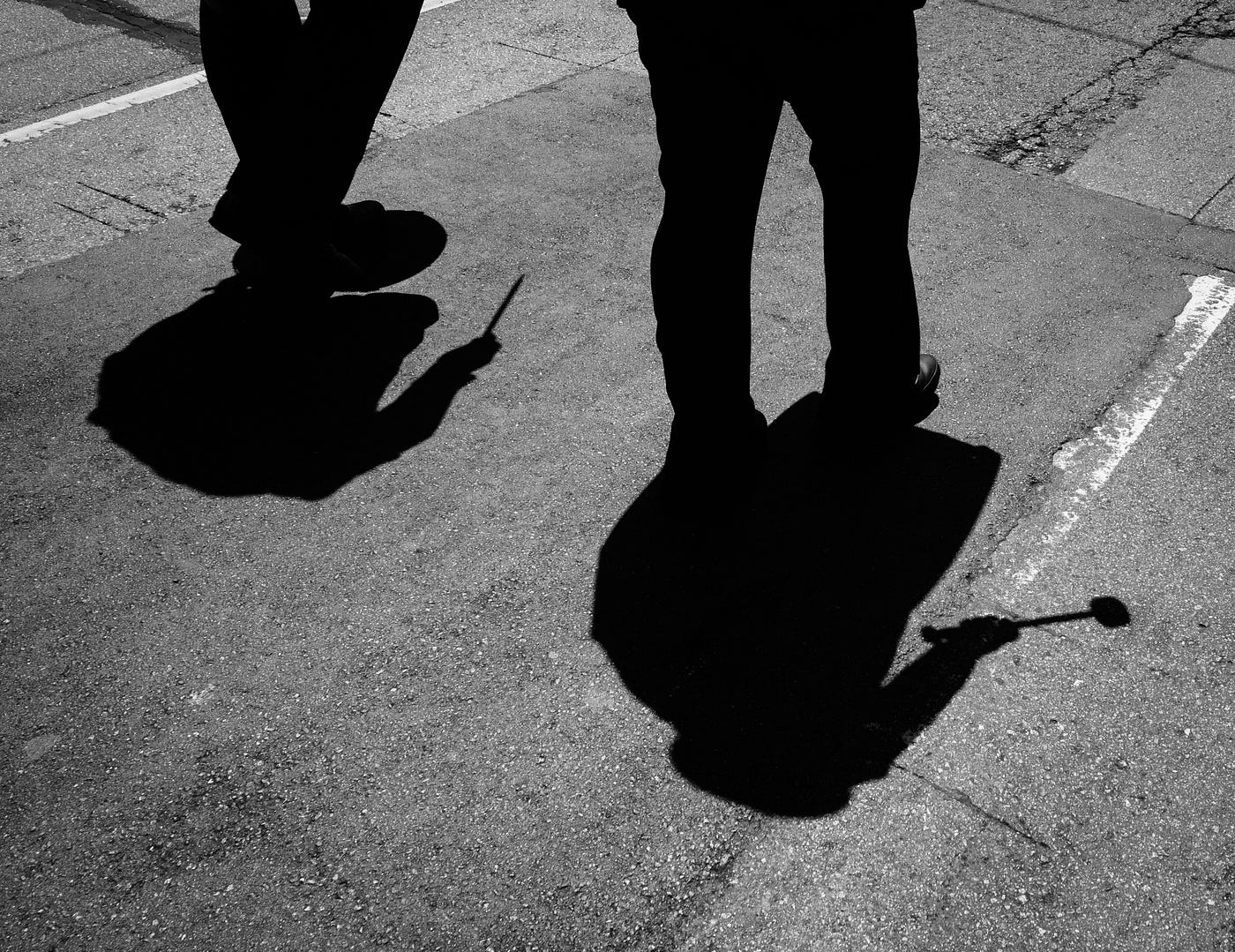
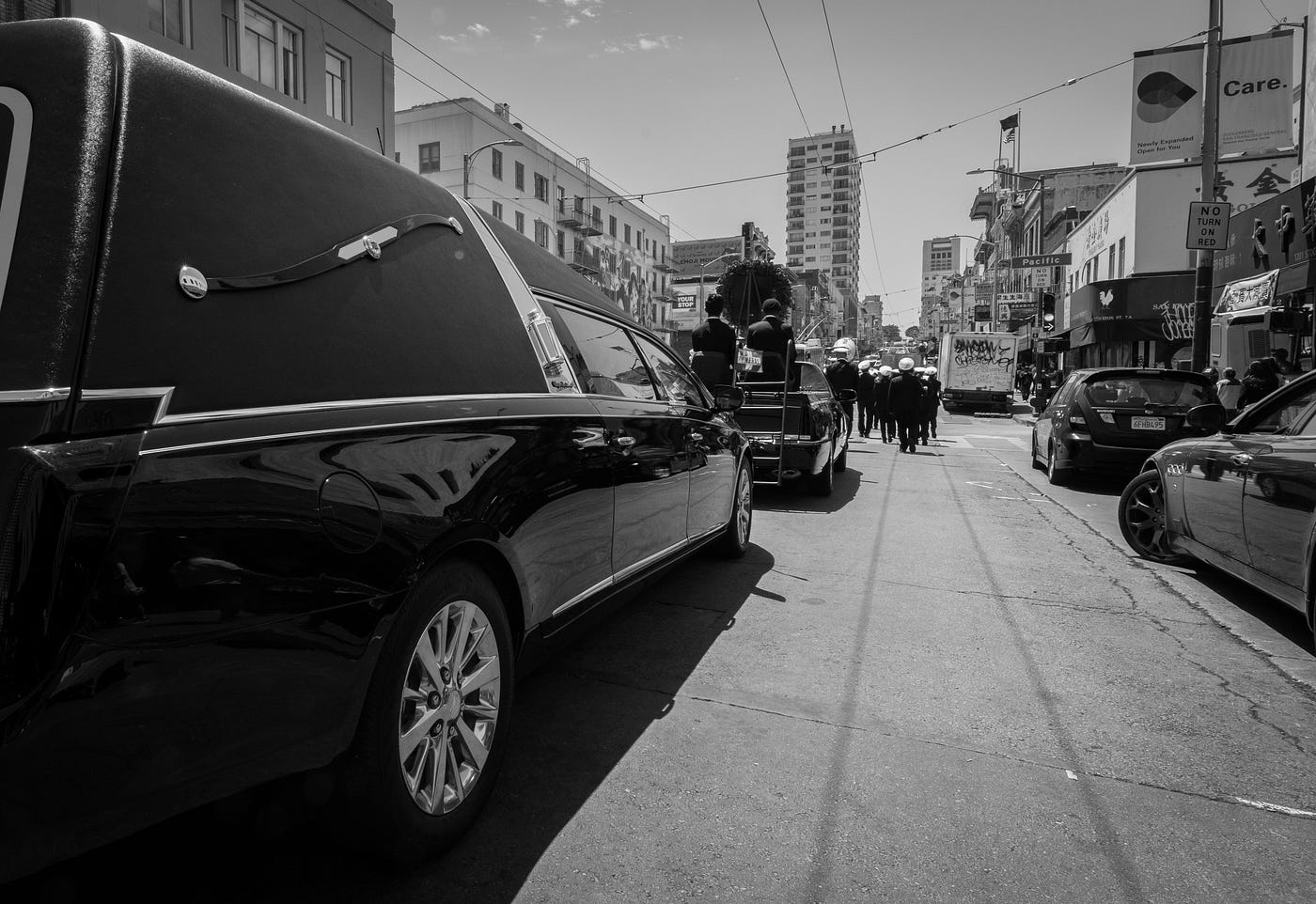
Under the hot sun, the procession gets underway, often traveling the same route — south on Stockton Street, left on Clay Street, left again on Grant Avenue and right on Jackson Street, concluding at the intersection of Kearny Street. Along the way, attendants burn incense and throw paper “spirt money” into the air from the funeral cars. This is plain, unbleached, coarse paper in the shape of bills with curved slits cut into them aimed at diverting malevolent spirits.
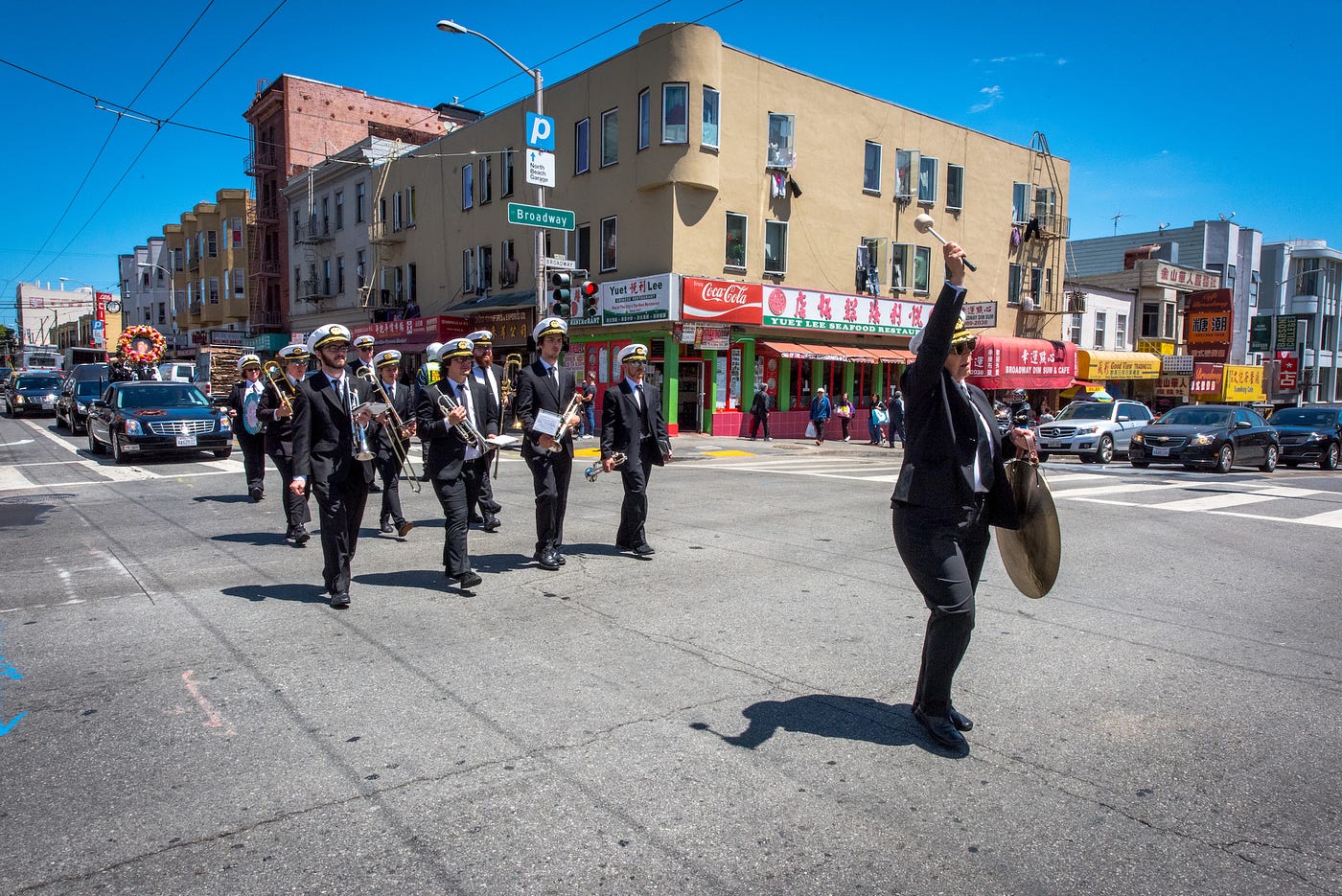
One belief is that the spirits will pass through the curved holes and become disoriented. Because spirits travel only in straight lines, they will be confused and kept from maligning the corpse. Another interpretation sees this as cheap money to “pay off” the poor, hapless ghosts.

As we march through the crowded streets of Chinatown, busy shoppers and tourists stop for a moment to watch the slow-moving entourage, hear the band’s seamless harmonies and the rolling snare drum and steady rhythm of the bass drum. They take a moment to respect the dead, perhaps pondering their own mortality. A young man, apparently not a veteran, raises his left hand in a military salute to the passing hearse.

Along the way, the cortege stops at the deceased’s home so his spirit can pay a last visit. The band faces the family’s house and takes three deep bows, each preceded by a gong played with dignity and pomp by Coppola.
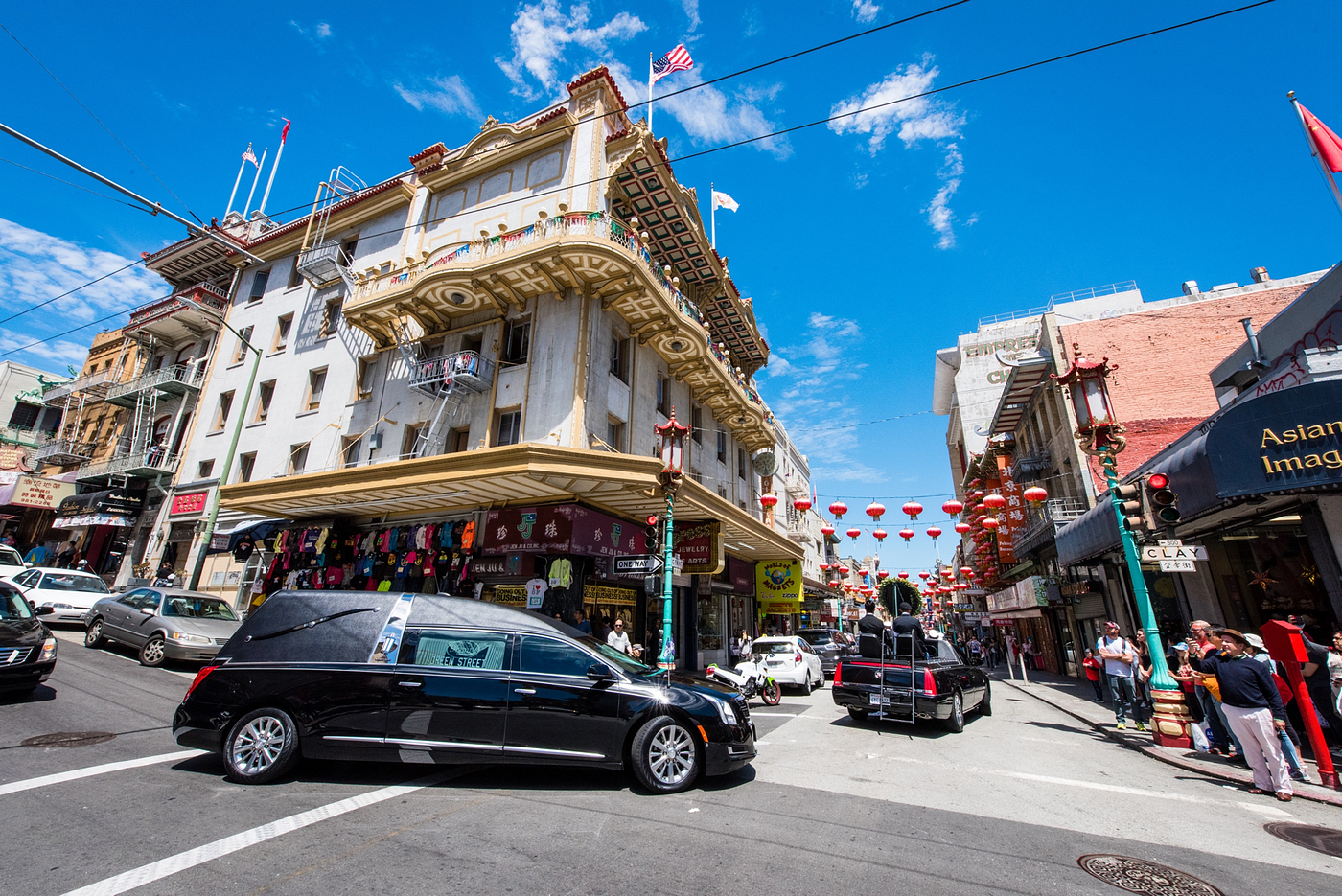
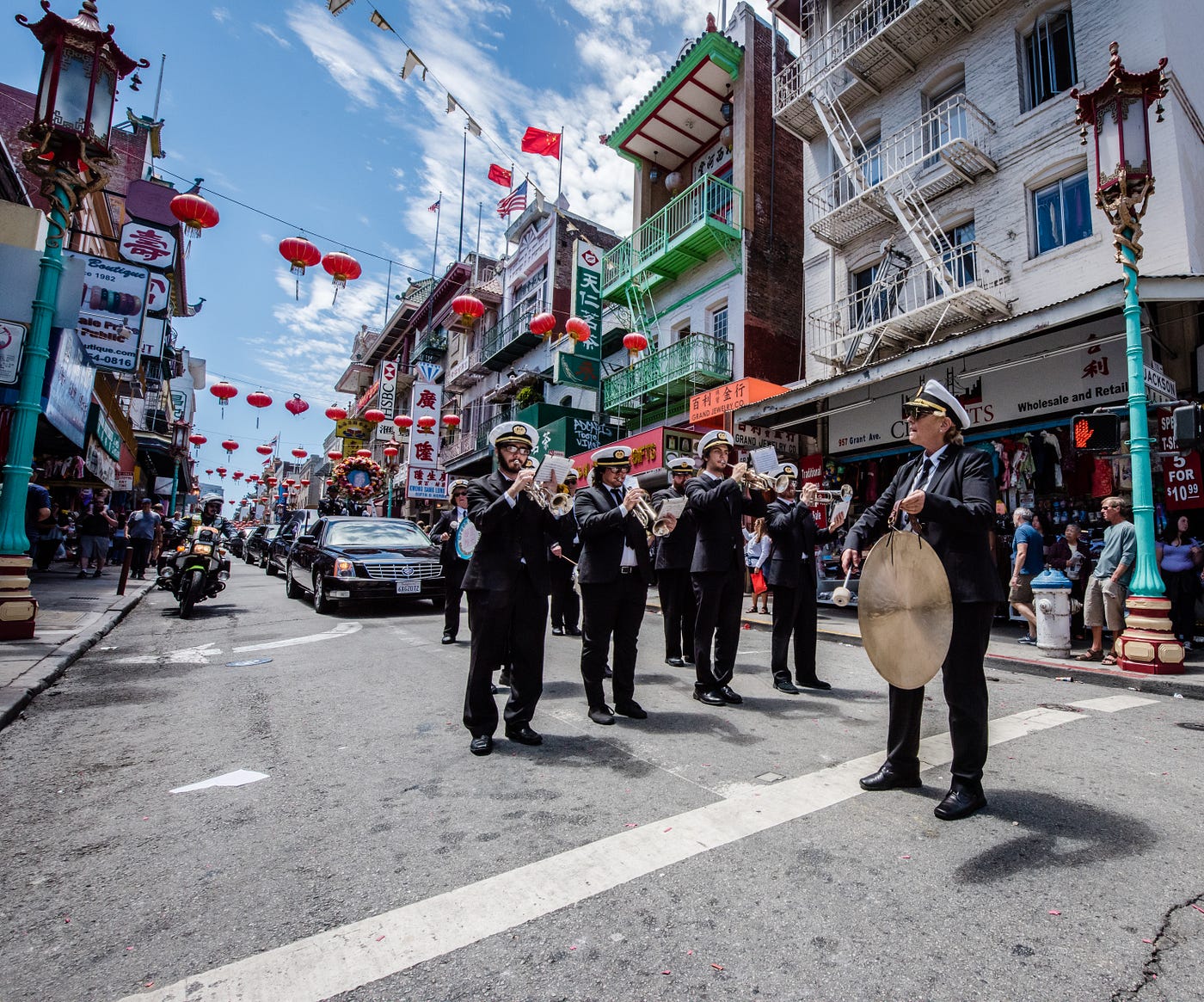
At Jackson and Kearney Streets, the old border of Chinatown, the entourage stops one last time. Now the attendants take down the wreathed picture of the deceased, open the back of the hearse and scatter the last of the “spirit money.”
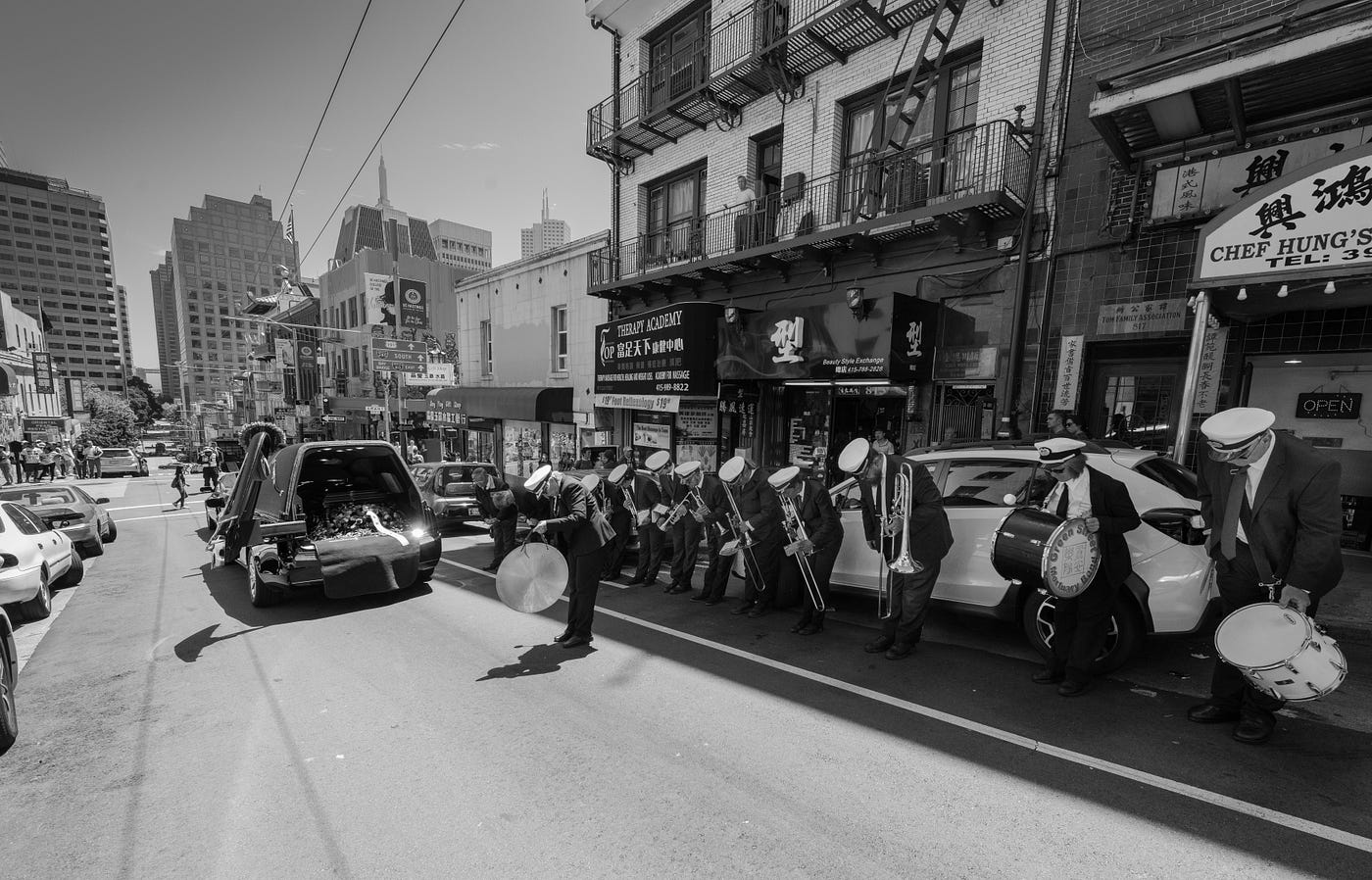
After one last hymn is played, the band slowly bows three times again with each strike of Coppola’s gong. The hearse doors are closed, and the band leaves the procession. The entourage of cars departs Chinatown for the deceased’s final rest in Colma — the City of the Dead, where the dead outnumber the living by a thousand to one.
“There’s a lot of love in what we do,” Coppola said on our walk back to the Green Street Mortuary. “There’s nothing like this band. I’m really proud of them.”
Hey! The Bold Italic recently launched a podcast, This Is Your Life in Silicon Valley. Check out the full season or listen to the episode below featuring Aarti Shahani, technology reporter at NPR. More coming soon, so stay tuned!



